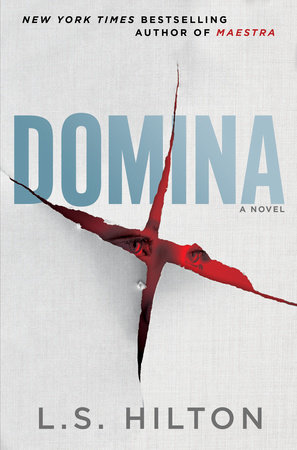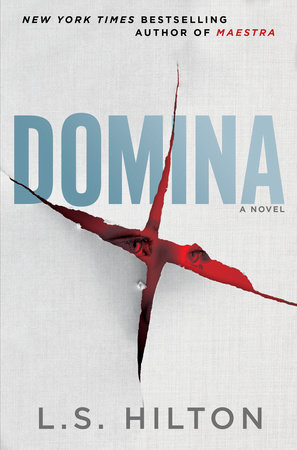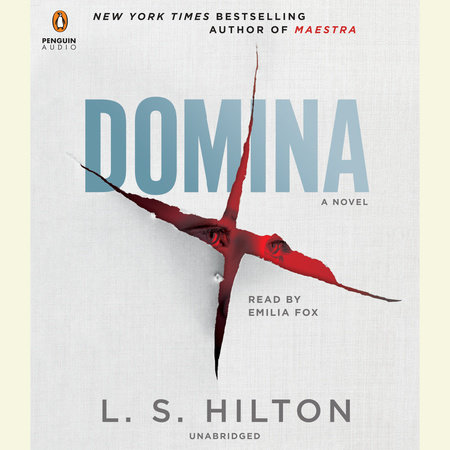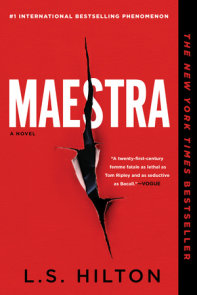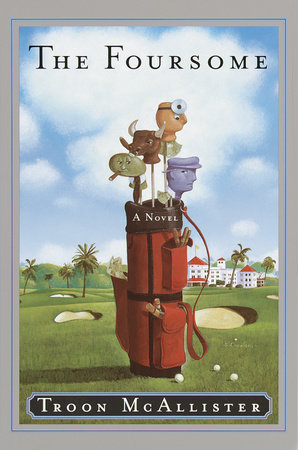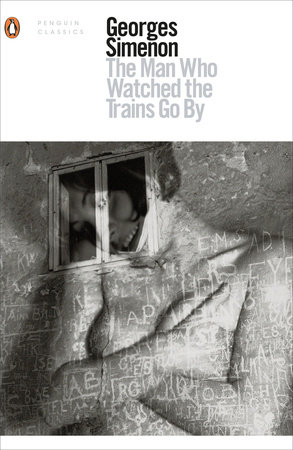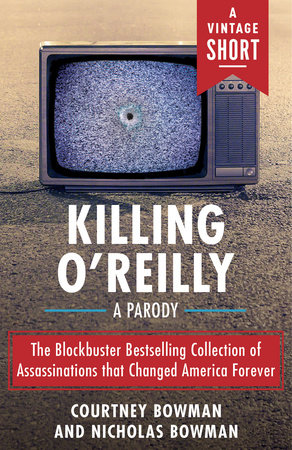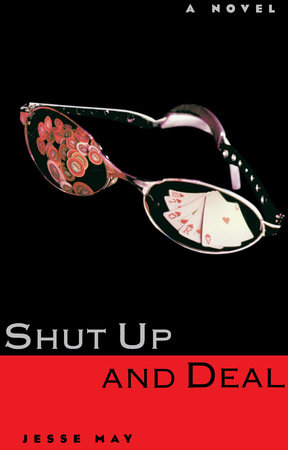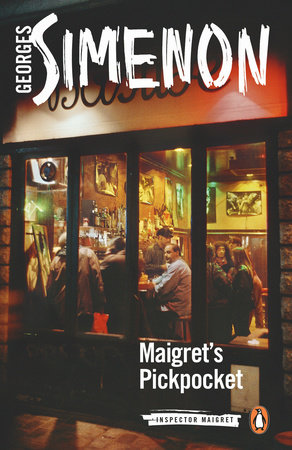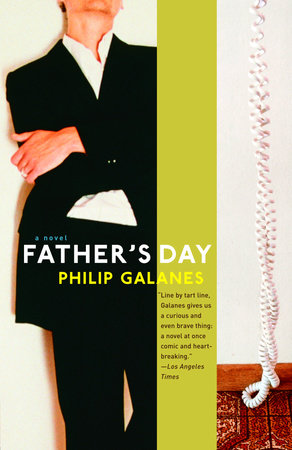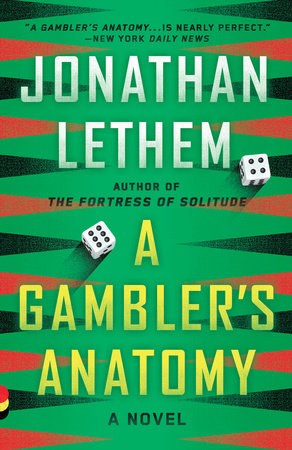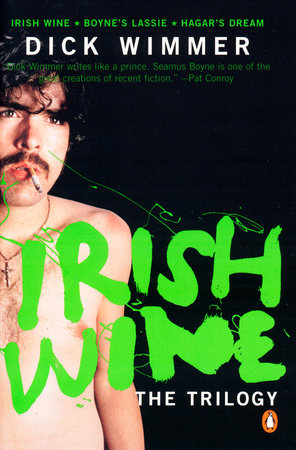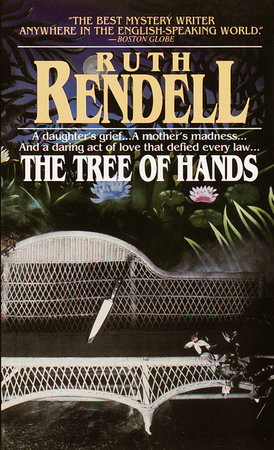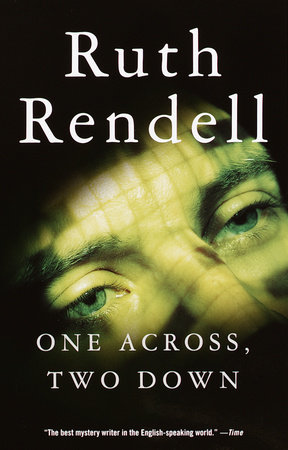Author Q&A
This is your second novel featuring Judith Rashleigh. How was writing Domina different from writing Maestra?
Much of the book was written on Ibiza, which is rather more exotic than my kitchen table, where I wrote Maestra! It was also very different in that I’ve never written a sequel before, and I was conscious of having to fill new readers in on Judith’s backstory whilst continuing to engage those who are already familiar with her.
How did you come up with the title Domina? What is its significance?
It’s sort of a joke. In Maestra Judith is essentially powerless, at least at the beginning, the reverse of the title, and in Domina she appears to have lost that power, again in opposition to the title.
In Domina, Judith is living a very different life from the one we saw in Maestra. How do you think her character has changed? Is she a different woman now that she’s gotten what she wanted?
I started thinking about the quotation from Freud “the end of desire is death.” What happens when you get exactly what you want? In some senses, Judith has become disillusioned—she’s no longer happy with the things she thought she wanted, but I hope she has remained as ingenious, funny, and ruthless as she always was!
Much of Domina is set within the European art world. How does your own background inform these scenes? How realistic are locations like Yermolov’s collection or the Xaoc Collective?
Many years ago, I worked at an auction house, and art has always informed a great deal of my nonfiction, historical work. I have continued writing about exhibitions and for institutions like the Royal Academy; last year I was lucky enough to work on the “Attorno a Caravaggio” show at the Brera museum in Milan and to contribute an essay on Cagnacci to a show at the Frick Museum in New York. I attend a lot of art fairs, such as the Maastricht Old Masters and the Venice Biennale, and much of the background in Domina is gleaned not so much from the works on display there but from eavesdropping on the conversations of dealers and buyers! The art world is quite a closed community in many ways, and I wanted to reveal it a bit more to readers of the novels. Yermolov’s collection is an invention, of course, but it’s not an implausible one; if you attend an auction, it is quite terrifying watching the bids mount into the tens of millions, all through anonymous telephone buyers. Those museum-quality collectors do exist, but by the very nature of their interest—secretive and extremely expensive–they are also vulnerable to the corruption which forms the dark side of the art world.
Xaoc is equally an invention—a slightly satirical one—but again, it’s based very much in reality. Eastern Europe is increasingly a destination for dealers looking for fresh talent, so for Domina, I visited Ljubljana in Slovenia and Belgrade in Serbia to check out young, emerging artists in their studios. I also interviewed members of a young artists’ collective working out of Marrakech, Morocco.
What research did you do for the book?
There was quite a lot of archive research on Caravaggio, and as well as visiting Belgrade, I also interviewed a bona fide arms dealer and (in a very complicated manner) a real “gray hat” hacker. I also did a lot of reading about Russian politics and the Russian mafia, as well as studying the Russian language (although I’m completely hopeless still!)
Serbia was particularly interesting—both uplifting and disturbing. The scars of the recent wars are still very much in evidence in the city, but it’s also very youthful and forward-looking. I did have quite a scary experience with some raw horsemeat, which I wrote about for a restaurant review!
Venice is a city I love and where I try to spend as much time as possible. It seems particularly appropriate as a base for Judith because whilst its beauty is unparalleled, it also has a very sinister side, a historical reputation for secrets and violence. It’s a city of masks, of disguise and deception, which is perhaps why Judith feels at home there.
Michelangelo Caravaggio and his work have a huge presence throughout the story. Why did you decide to focus on this painter? Do you have a personal connection with his work?
I recently worked on the labels and the hang for the “Attorno a Caravaggio” show at the Pinacoteca di Brera, Milan, which was an enormous privilege—I got to spend a lot of time very close to the pictures. The more I learn about Caravaggio, the more I am compelled by the immensity of his talent and his revolutionary technique, and that’s before one even begins on the fascinations of his biography. Many critics think that Caravaggio represents a turning point in the history of art in the same manner that Picasso might be said to, and I wanted to bring some of that energy and wonder to the book. Of course, Caravaggio was also a criminal, and Judith references several times the personality traits she thinks they have in common.
How was writing Judith’s voice different in this novel than in Maestra? Was there one novel you enjoyed writing more?
This one was maybe more interesting, because I think Judith’s character trajectory is more complicated. I think the other recurring characters—Steve, Carlotta, and Dave—have bigger voices here, and I enjoyed adding to them. We hear Judith speaking a lot more here, and perhaps get a sense of the extreme contrast between the way she appears and the way she thinks; it felt like I was telling the reader a secret.
Timothy is such a surprising fit with Judith. How did you come up with his character? Why did you choose to have her work with a partner in this book?
I wanted to make her more vulnerable. But also to bring out an emotional aspect to her character which was buried quite deep. Timothy is very similar to Judith in many senses; they are both quite broken, but also strong in ways that many people aren’t. They recognize each other somehow, although I’m not sure their relationship could be said to be affectionate.
We learn a shocking secret about Judith toward the end of Domina. Without giving anything away, tell us a bit about this reveal. Were you surprised by the turn her story takes, or did you always know this had happened to her?
I had it in my mind from the first, but I had to find the right place for it in the story. It’s quite harrowing (I had difficulty re-reading that scene when it came to proof, to be honest), and it’s also perhaps the ultimate example of betrayal. It helps the reader maybe to understand why Judith will never really trust anyone but herself.
Where do you see Judith going from here?
All guns blazing!
